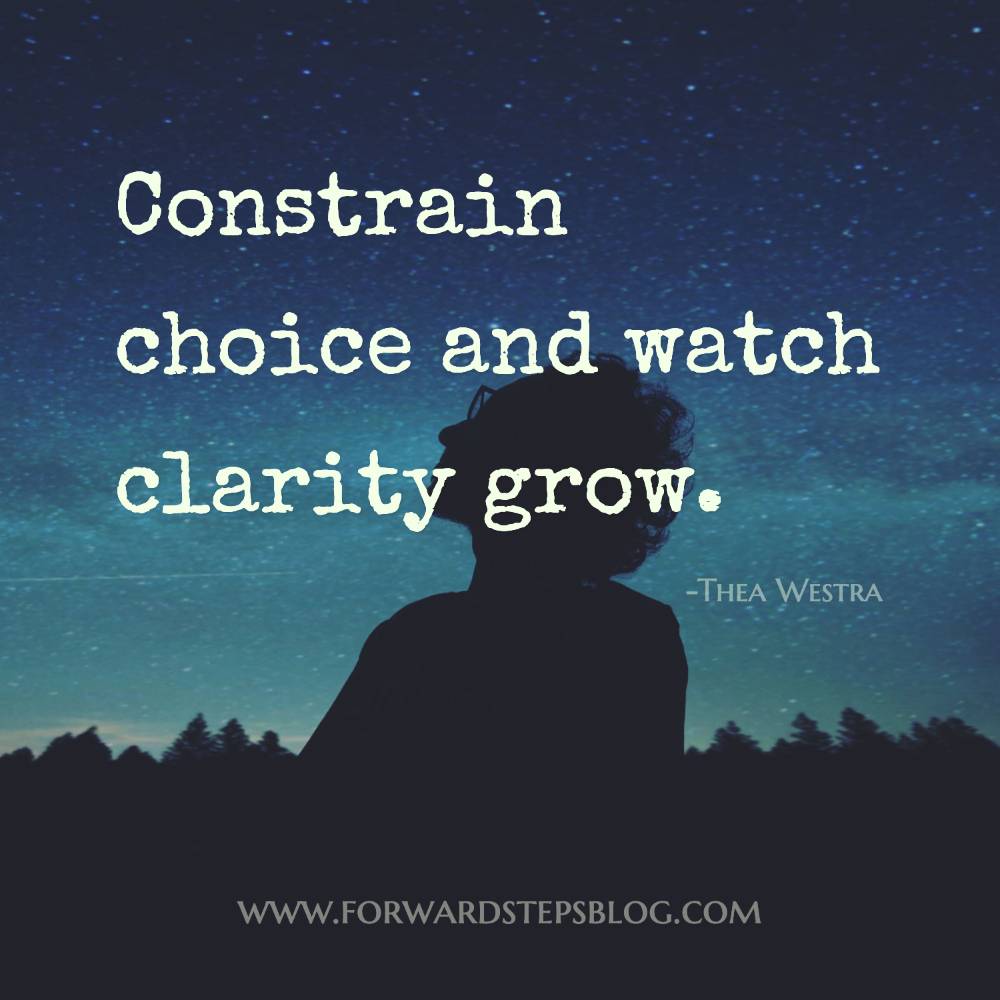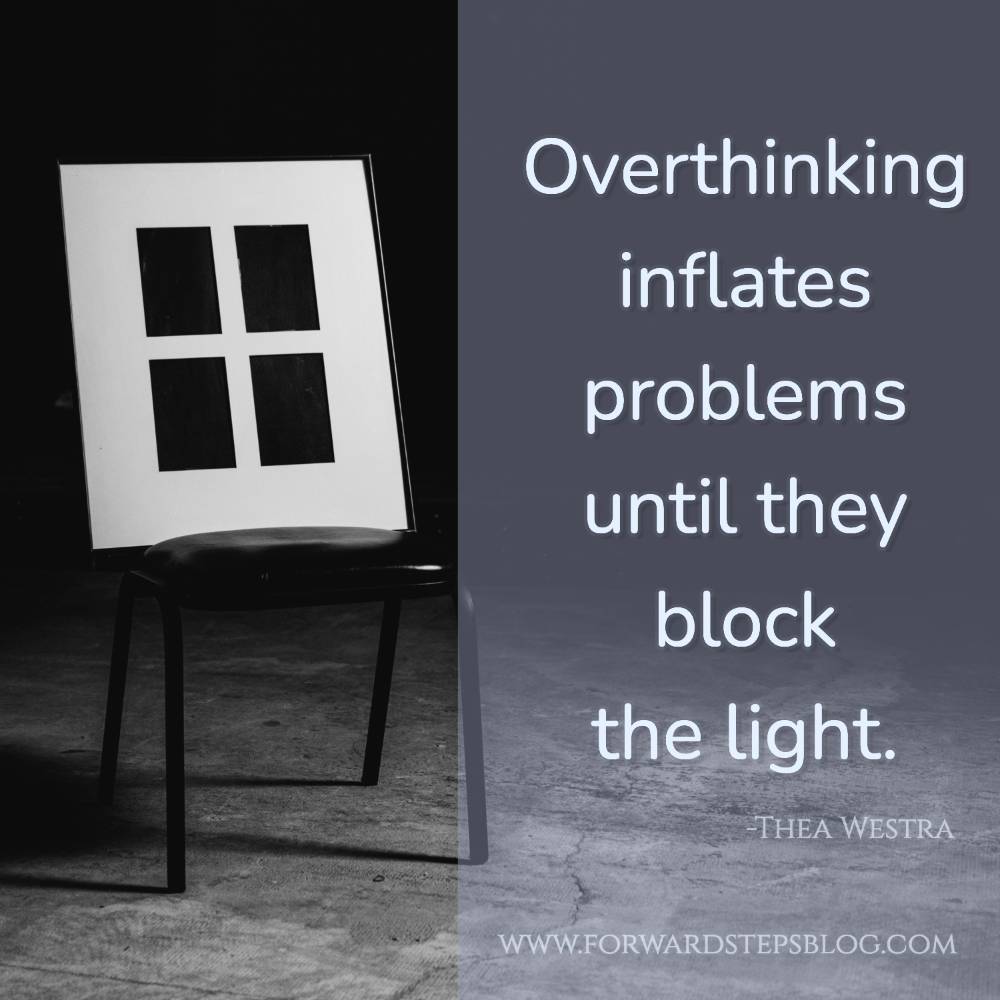Most people confuse busyness of mind with wisdom. Overthinking arrives as a feeling of seriousness and importance. The habit makes life feel like a rehearsal where the show never starts. Thinking densely is not the same as thinking well. Insightful thinking is leaner. It does less talk and more testing. It practises a few clear rules. It moves from imagining disasters to gathering evidence then making modest bets.
This article explains why the brain gets stuck. It gives tools to reroute rumination into curiosity and experiments. The tone is practical and candid. No promises of instant calm are made. None of the suggestions require special gear or spiritual training. They require small rules and slow work. The results compound.
Name the loop
A loop is recognisable by repetition. The same scenario reappears with tiny variations. The mind tells itself a version of the story and then treats that reenactment as insight. A test for looping is simple. Ask if the thought brings new evidence or merely replay. If the answer is replay then you are in a loop.

An example helps. Imagine you are replaying a conversation with a colleague. The loop acts like a director who rewrites the scene with worse lines. Name the loop then categorise it as either ‘urgent to act’, ‘social rehearsal’ or ‘self criticism’. Each label suggests a response. Urgent items go to the worry slot. Social rehearsal becomes a script practise. Self criticism belongs in a kindness and evidence file to be tested against reality.
Many people believe insight arrives in extended rumination. A named loop reduces the charisma of drama. The mind will argue this belittles seriousness. Let that argument pass. The aim is clearer thinking not theatrical diligence.
Give worry a time and a place
When the day has no boundaries the mind fills the gaps. Create a time and place for worry. Choose fifteen to twenty minutes a day when you allow yourself to think about the concerns that have been returning. Keep a single notebook for this purpose. Outside that time do not follow worry except to jot a brief note that you will return to the worry in the next slot.
The critic becomes helpful when treated as a hypothesis machine. Share on XStructure turns free floating fear into a manageable resource. Scarcity improves focus. If a thought is postponed to legitimate worry time it often loses its urgency. Many anxious flashes are endurance tests. They pass when not fed.
Here is a simple worry slot routine you can adapt:
Open your notebook and write the date.

For each line ask, “What is one small action I can take in the next seventy two hours?”. Write the answer in one line.
If no action suggests itself write ‘monitor’ and add a revisit date.
This routine does two things. It converts emotion into tasks. It creates deadlines. Tasks and deadlines reduce ambiguity which is the main fuel of overthinking.
Practical tweaks increase the routine’s usefulness. If an item requires more than fifteen minutes of attention give it a specific appointment later in the week. If the worry is political or global in scale limit the number of items you allow into the slot to two. Oversized problems deserve longer term strategy sessions not daily worry.
Your thoughts are guests. You choose which ones stay for tea. Share on XThe notebook becomes a companion. When the same worry reappears the evidence of previous attempts helps you decide if further attention is useful.
Use constraints to force clarity
Unlimited options encourage endless mental simulation. Constrain the problem. Give yourself a five minute deadline to list options. Give each option thirty seconds. The aim is not speed for speed’s sake. The aim is to privilege usable ideas over endless speculation.
One practical constraint is the two minute test. If a small decision can be resolved in two minutes then resolve it. A short decision rule prevents the mind from elevating trivial matters into life changing dilemmas.

Constraints also help in conversations that you replay. If you catch yourself composing replies in your head impose a limit. Allow yourself one paragraph of preparation and then stop. Real speech adapts in ways private rehearsal cannot.
Constraints feel odd the first few times. The mind will resist the pressure. It will claim that depth requires time. Depth usually needs iteration not endless private theatre.
Treat thoughts as experiments
A thought that forecasts catastrophe is a claim about the future. Treat it like any other claim. Ask, “What would prove it true?”. Design the smallest test that returns useful data.
Here is a simple experiment template you can use:
State the worry in one sentence.
Identify the core assumption underlying the worry.
The brain seeks closure and experiments provide it. Share on XDescribe the smallest action that would produce evidence relevant to that assumption.
Choose a short time box for executing the action.
Record the outcome and update your belief.
Examples make this concrete. If the worry is ‘I will not handle the new role’ the assumption might be ‘I lack baseline skills’. A tiny action is to complete a single task from the role for three days and compare time taken against reasonable expectations. The result will either confirm a skills gap or point to other causes such as poor induction or unclear goals.

Experimentation changes the relationship you have with your inner critic. The critic becomes a useful hypothesis generator rather than an unchallengeable authority. This shift is small yet it alters decisions not just moods.
Make thinking public in small ways
Secrecy amplifies significance. Thoughts that remain private gain weight because they are untested. Speaking the worry aloud or writing a raw paragraph to a friend shows how flimsy some fears are. The social surface acts as a reality check.
Use small public tests. Send a two line message to a trusted person explaining the core worry and ask for perspective. Keep the request specific. Ask, “Have you seen this before?” or “What would you do in my situation?”. Short direct questions produce better feedback than essays of anxiety.
Writing is another form of public thinking. Compose a single paragraph that describes the concern and the decision you are leaning to. Save the paragraph and then read it later that day. Distance often exposes exaggeration. Many insights land simply because words demand precision.
When in doubt, act small and act soon. Share on XChoose your sounding board with care. Prefer people who give brief direct responses who hold distinctions between empathy and amplification. The aim is clarity not catharsis.
Public testing also sometimes reveals unexpected options. A friend might mention a resource or a contact that moves the problem from impossible to manageable. Social information is one of the easiest sources of evidence. Use it.
Turn rehearsals into testable decisions
People rehearse decisions hoping rehearsal will yield certainty. Certainty rarely arrives from thought alone. It requires engagement with the world. Turn rehearsal into action by choosing moves that are reversible or low cost.

When a choice must be made quickly adopt a minimax rule. Choose the option with the least potential for long term regret while still moving you forward. That typical choice reduces paralysis and preserves dignity.
Document the rehearsal. Say into your phone a one minute summary of the dilemma your likely choice and the first microcommitment. Listen back to the recording the next day. Distance often softens certainty and sometimes reveals gaps you missed.
Teach yourself that most mistakes are repairable. The imagination treats error as terminal. Reality tends to be more forgiving. Framing decisions as learning experiments reduces the need for exhaustive private rehearsal.
Practice curious skepticism
Replace accusatory questions with investigative ones. Instead of “Why am I such a failure?” ask “What pattern has led to this result?” and “What can I change?”. Curiosity holds space for flaws without turning them into identity.
Sort thoughts by relevance. Useful questions concern matters that are changeable or near term. Ask, “Will this matter in three months?” and “Is this actionable in the next week?”. If the answer to both is no let the thought pass and reserve energy for the things that are manageable.
You cannot think your way into certainty, only act your way into it. Share on XCurious skepticism is not cold logic. It recognises emotion as information. The inner critic often identifies genuine problems then amplifies them into catastrophes. Skeptical curiosity extracts the signal while discarding the drama.
A practical habit is to keep a short list of the questions that produce progress for you. Mine include, “What is the smallest useful test?” and “Who would have useful perspective?”. Return to that list when panic threatens to hijack thinking.
Use the body and an evidence file to clarify the mind
Physical habits influence thinking. Sleep quality diet and movement shape how the brain evaluates risk. Poor sleep makes problems feel larger. Regular exercise reduces physiological arousal which makes the mind less inclined to loop.

An evidence file complements bodily work. Create a short document with three sections. Section one lists experiments and outcomes. Section two stores short case notes about problems you solved. Section three records the rules that helped you decide. When doubt returns consult the file to remind yourself of what worked and what did not.
The file has practical effects. It reduces the authority of repeat worries by showing their historical failure rate. It also supplies quick rules for action when time is limited. Over time the file becomes a compact manual of your most useful decisions.
Practical scripts and templates you can use this week
In this final section find short scripts you can start using today. Keep them in your phone notes or a small notebook. Using them even imperfectly is better than waiting for the perfect moment.
Worry label script:
When a thought repeats say silently, “Loop detected”. Then ask, “What is this trying to get me to do?”. Spend no more than sixty seconds on the answer.
Worry slot script:
Open your notebook. Write three concerns. For each write one next action for the next seventy two hours. Mark items that need monitoring and set a revisit date.
Experiment template:
Write the worry. Identify the key assumption. Describe a one day or one week test. Set a stop date. Record the result.
Public test script:
Compose a two line message to a trusted person. Explain the worry and ask one specific question. Send it.
Decision microcommit template:
Break the choice into three steps. Each step should be small time bound and reversible where possible. Do the first step within a week.
Daily habit checklist:
Do a five minute movement before planning.
Complete the worry slot if scheduled.
Add one experiment outcome to your evidence file.
Review quick decision rules when a choice is urgent.

Overthinking is not a moral failure. It often signals care and responsibility. The task is not to expel thinking, it’s to redirect it. Use identity sparingly. Call yourself ‘someone who experiments’ rather than ‘someone who fails’. That small rebrand changes the narrative.
Insightful thinking requires rules. The rules here are intentionally low drama and high discipline. Name the loop. Give fear a time and place. Use constraints. Test assumptions in short experiments. Share small tests publicly. Record outcomes and move with micro-commitments. Mix those rules with body routines and an evidence file and the habit of productive thought will begin to replace the habit of anxiety.
If you try only one thing start a worry slot tonight for fifteen minutes. Write three items and pick one micro action to do tomorrow. The rest can wait.
PLUS check out these free gifts from friends… CHECK out the following great resources as well…Forward Steps Personal Development »









